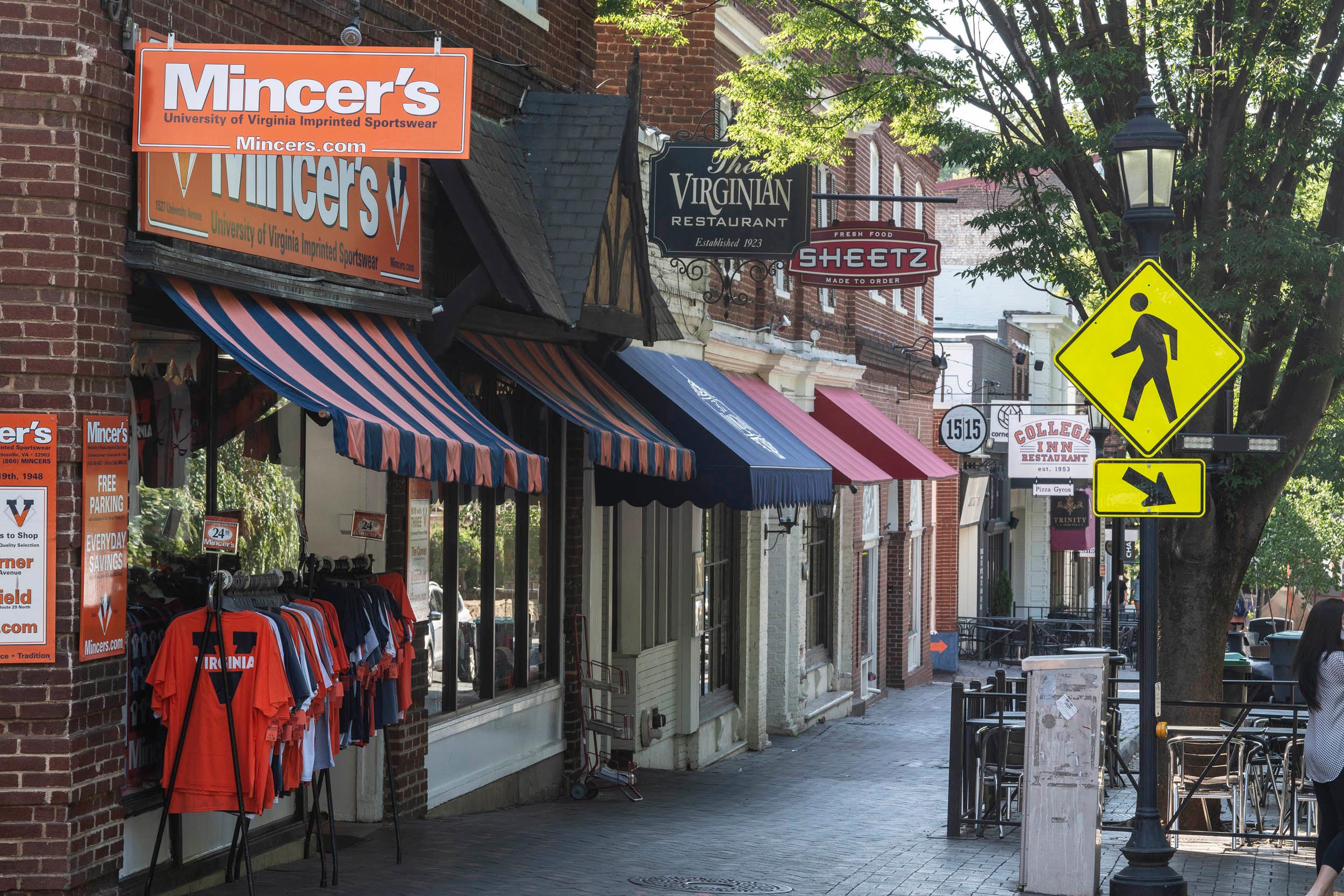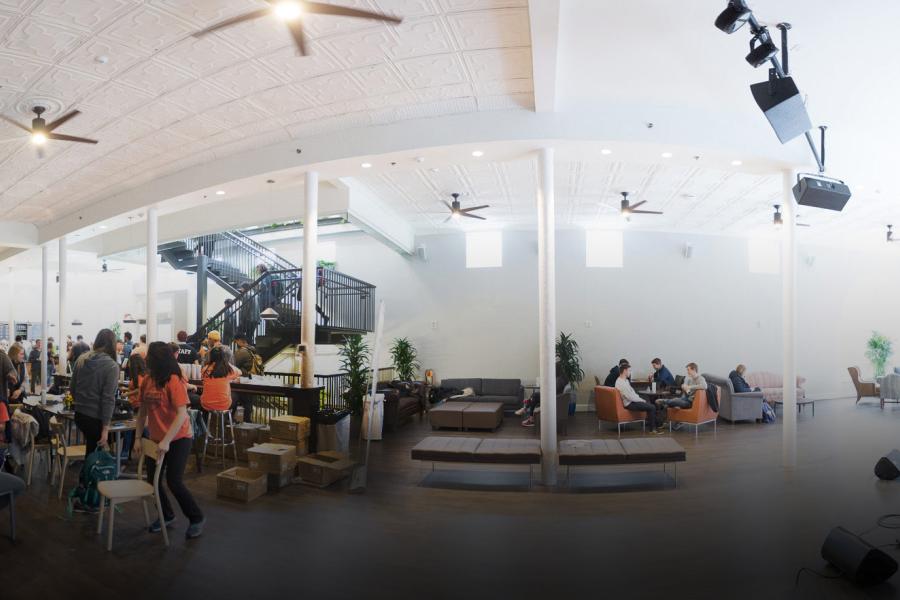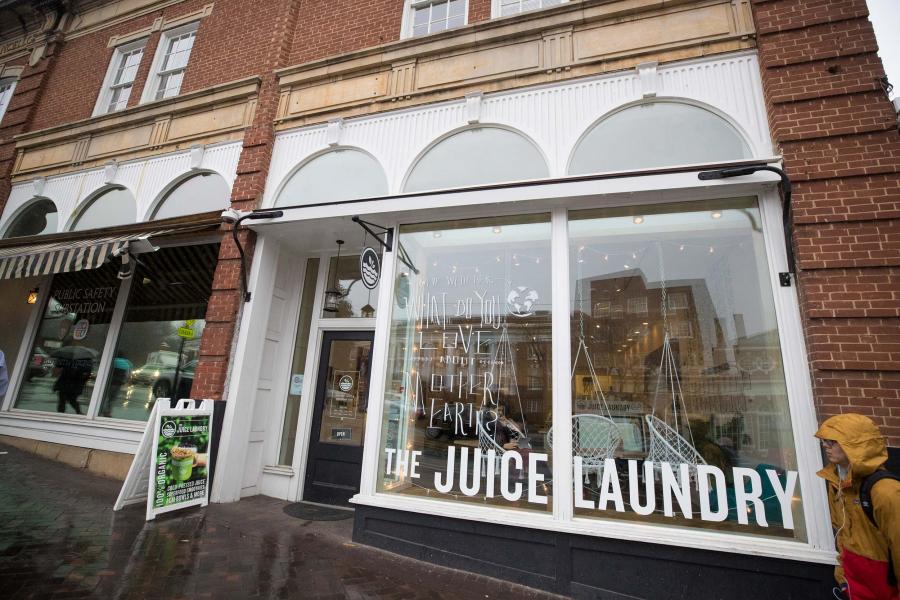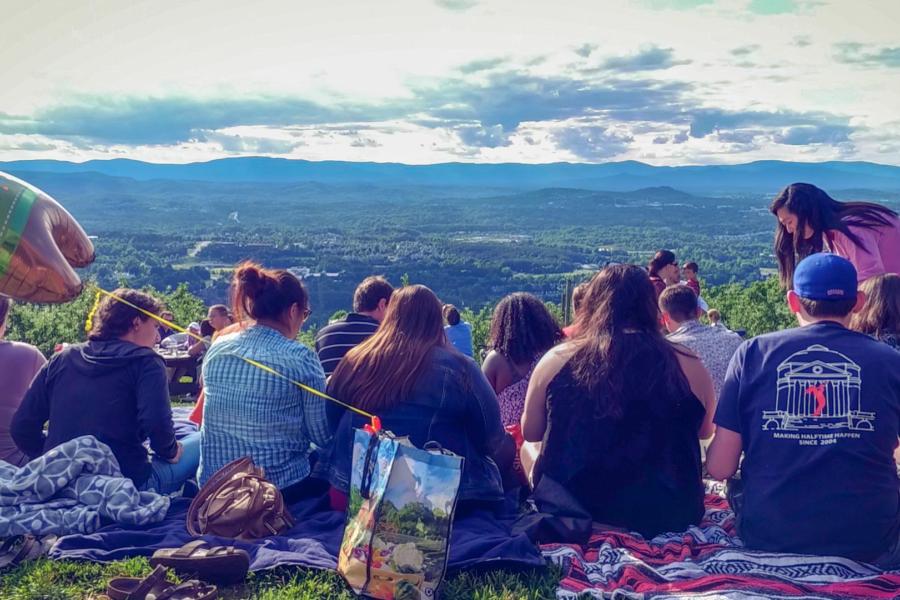Editor's note: With orientation beginning, new students and their families might be encountering the Corner for the first time. Here's a bit of history to help for a famous commercial strip that never stops changing.
The sidewalk is bustling with activity: students grabbing a bagel from Bodos or a snack from Sheetz, families and Charlottesville townies eating out on the sidewalk at their favorite restaurant, tourists stocking up on UVA merch from Mincer’s. There’s a nurse at Roots grabbing salads for coworkers and a group of people with yoga mats slung over their shoulders entering the Corner Juice. The Corner is a community hub for everyone from students to tourists.
Shortly after the cornerstone of the University of Virginia was laid just a few yards away as Thomas Jefferson and others looked on, a small corner of boarding houses and restaurants began to spring up around the University that was separated from the city of Charlottesville. Today, the Corner consists of eight blocks chock full of shops and restaurants, representing the intersection of the University and the greater Charlottesville area. Although UVA becomes noticeably quieter when the students go home for the summer, the pulse of the Corner activity continues as summer students and locals frequent the businesses there.
From the time of horse and buggies to today’s Lime scooters, many establishments have come and gone, while some have stood the test of time. Regardless of who occupies a spot on University Avenue, the spirit of the main drag endures and many spots linger in students’ memories long after graduation.
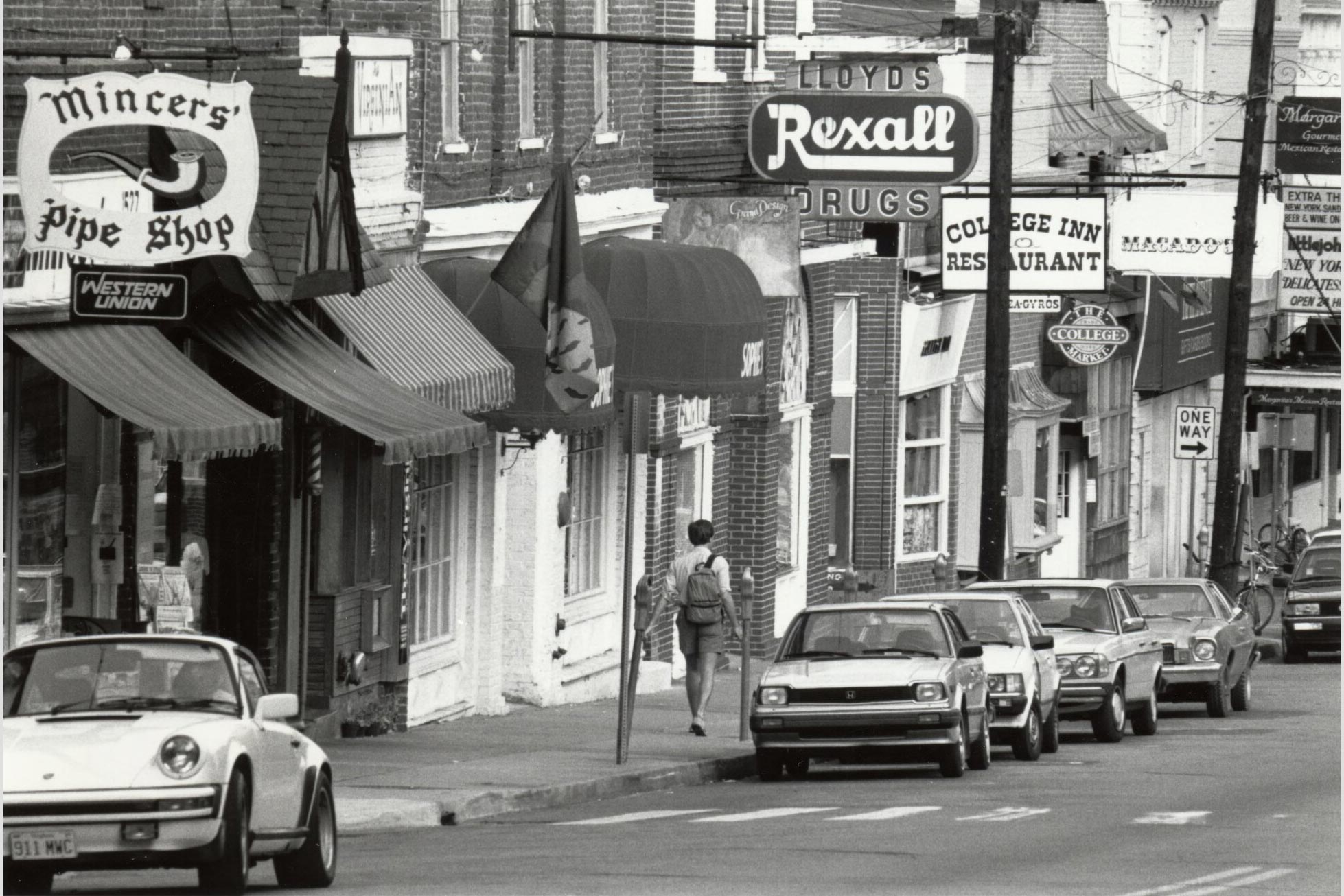
Joined by Alexander “Sandy” Gilliam, University history officer and long-time Charlottesville resident, we’ve taken a deeper look at some of those key buildings and their transformations through the years.
1515 University Ave.
The building now known only by its street address, 1515, was first constructed in 1896 to be a student boardinghouse run by Mrs. Todd. Gilliam remembers many of the now-commercial businesses on Elliewood Avenue and past Bodo’s on University Avenue as homes run by widowed women for rowdy young men at the pre-coeducational University.
After its life as a boarding house, the front part was renovated around the 1930s and 1515 was split down the middle to allow for two different businesses within. The left side was The Cavalier, otherwise known as the Cavalier Diner, operated by Charles Smith, who served sandwiches at his soda fountain. According to “Around the Corner: After World War I,” a book by the late Charlottesville resident Joseph Eddins, “[Smith] also operated the Cavalier Pressing Club which catered to students cleaning and pressing needs. This was in the rear part of his half of the building and had a door in the back for clothing drop-offs and pick-ups.”
The right side of the building housed Jamieson’s Book Store. The proprietor, Mr. T. Jamieson, used to work for the Anderson Brothers Book Store down the street. Eddins wrote that Jamieson loved books so much he felt he needed to own his own store.
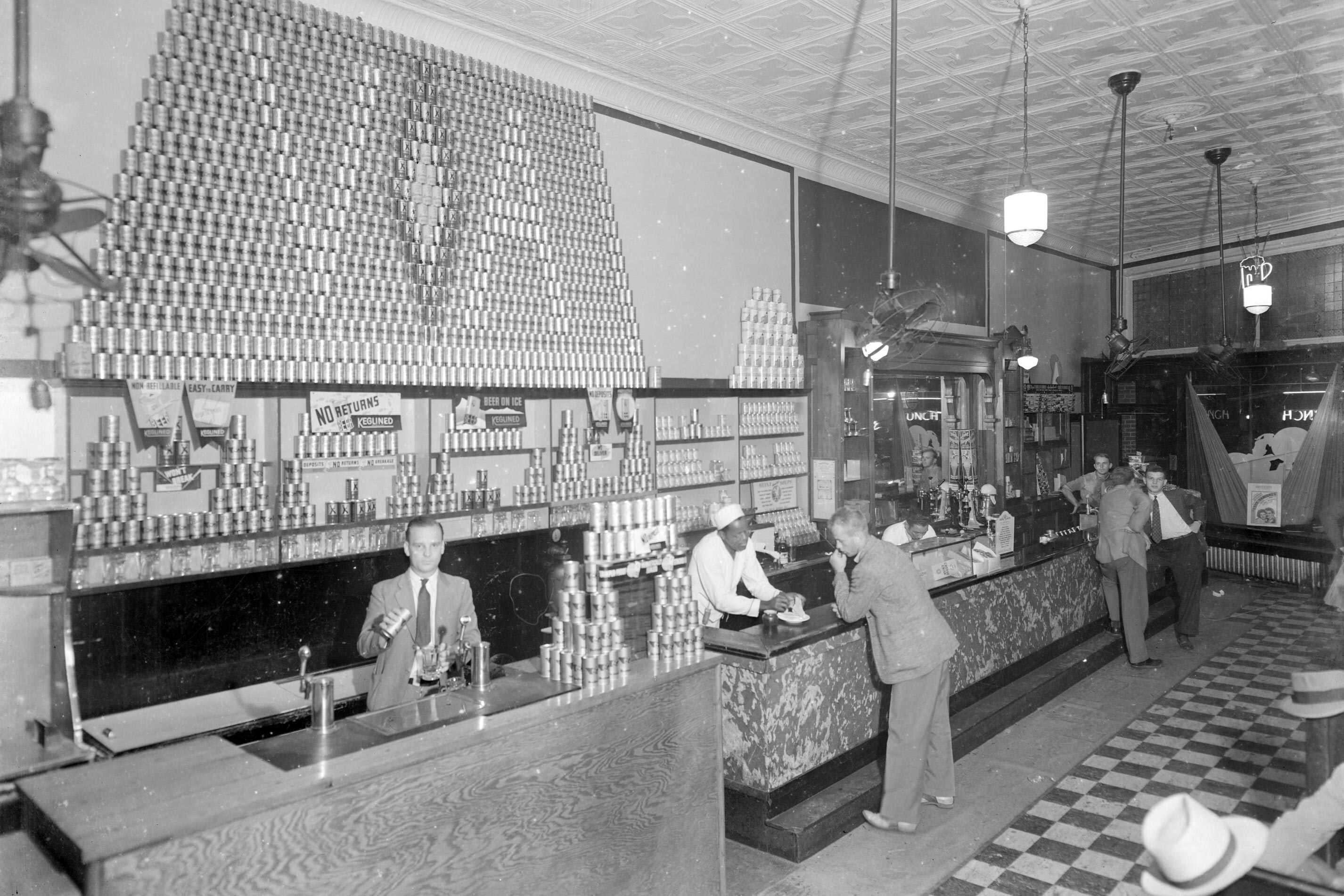
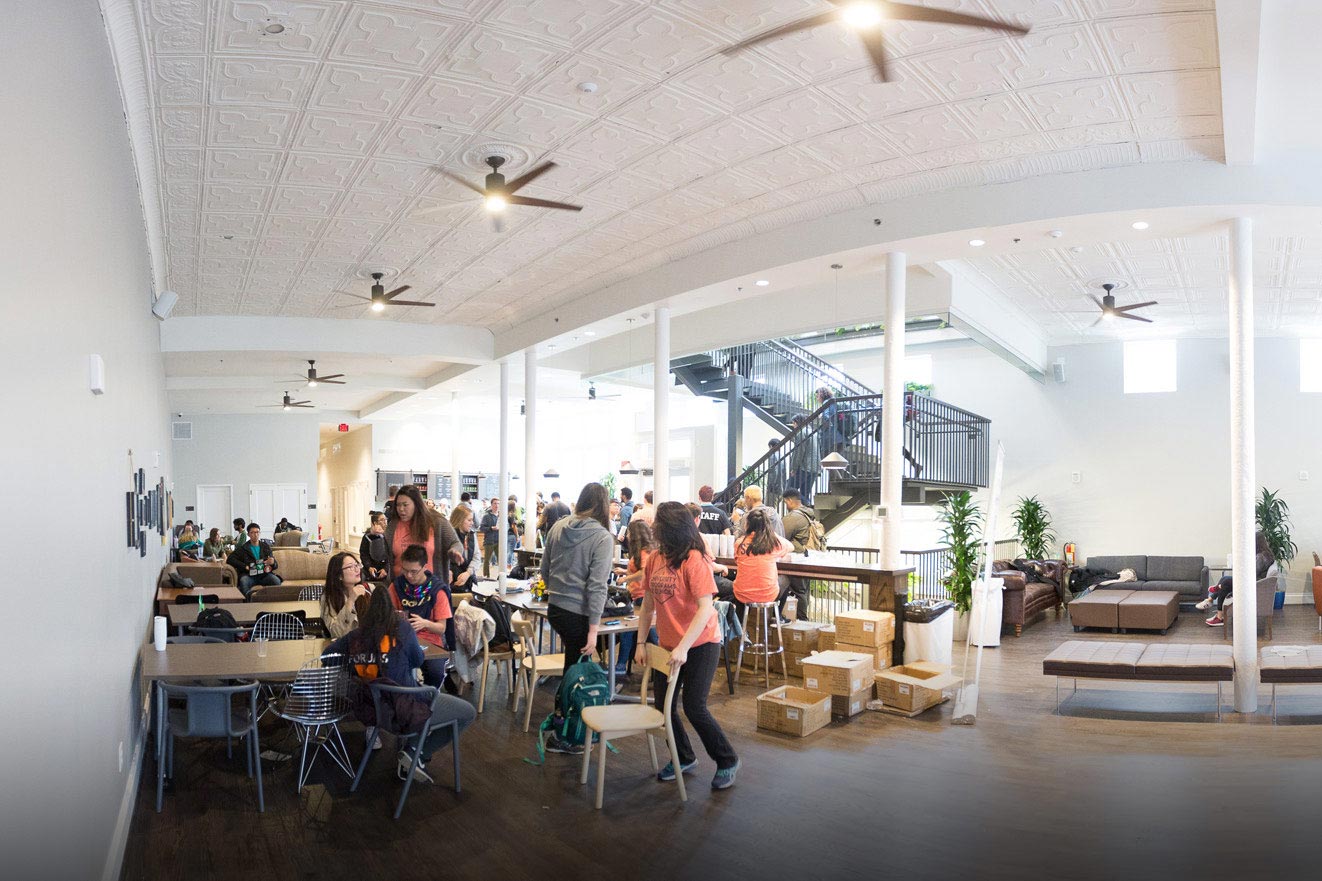
After the closure of the Cavalier Diner and Jamieson’s, 1515 was opened up again to contain Lloyd’s Rexall Drugstore and, prior to 1515, was the home of the UVA Student Bookstore.
Now the site of a University-owned, open-concept student study and hang-out spot, 1515 University Ave. encompasses the spirit of the Corner as a gathering place for the community that surrounds the University. The student space features a stage for performances, a coffee shop for hungry studiers, rooms for relaxation, rehearsals, watching TV and playing games. [Learn more about the 1515 space here.]
1417 University Ave.
Anderson Brothers Book store, established in 1876, was the largest student bookstore in Charlottesville before the creation of UVA’s official University Bookstore. Originally only a two-story building with several businesses on the first floor and Anderson Apartments on the second, the building was restored after World War I, according to Eddins, and an additional level was built for more apartment space. The apartments served as convenient housing for the families with loved ones in the hospital and provided permanent residences to a few locals, including the Nance sisters, who operated the University Tea Room across the street.
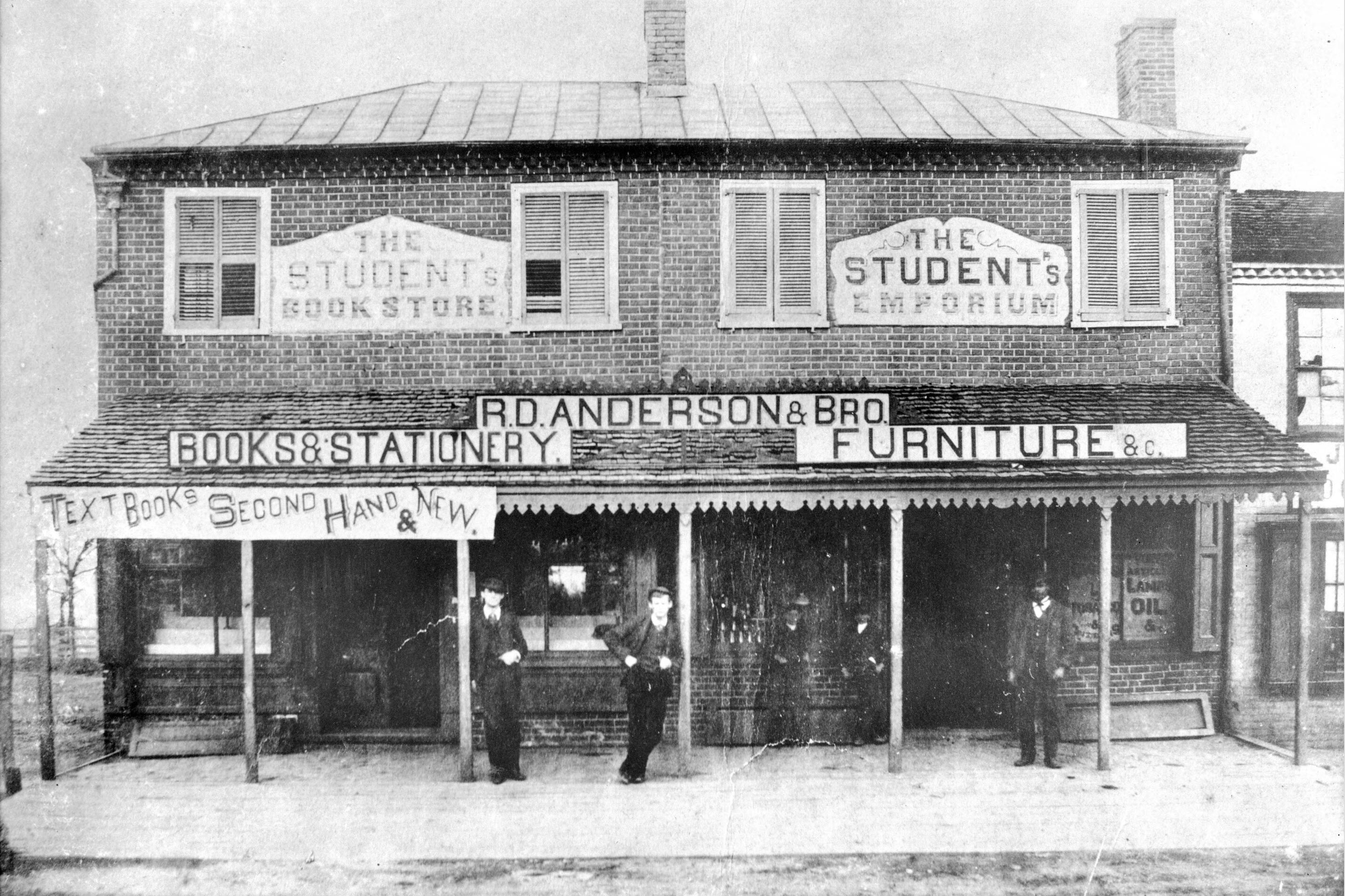
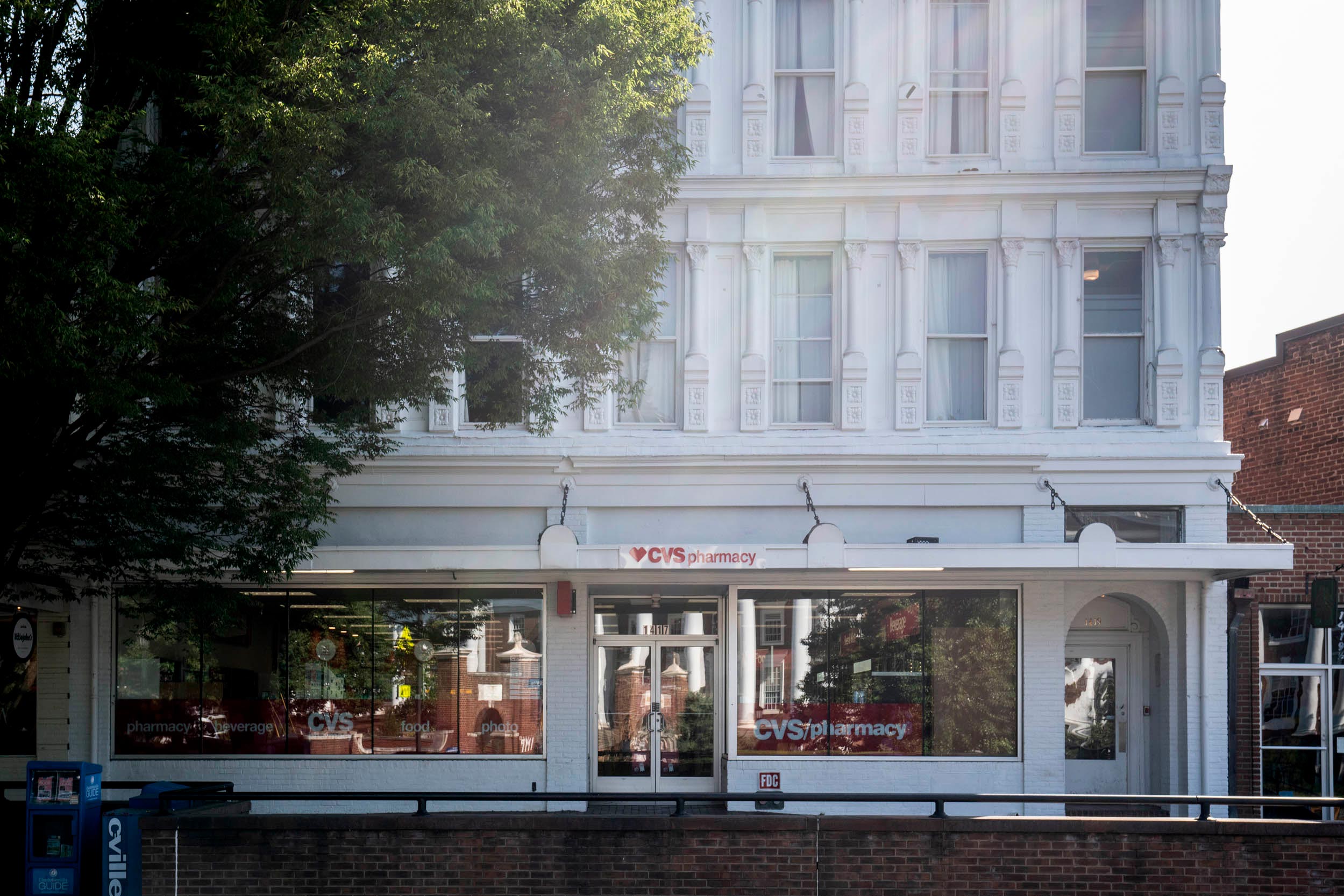
This spot on the Corner is the site of little-known anecdotes and traditions. In Eddins’ book, he recounts a specific history of the sidewalk in front of Anderson’s. “Captain Schnieder operated the first large-scale newspaper business on the Corner. He was a large, jovial, one-armed German and he met the very early trains with his dog and a two-wheeled push cart. He would stack the packaged newspapers on his cart and push it up West Main Street to Anderson Brothers Book Store. There he stacked them on wooden strips along the sidewalk, under the shelter, and began selling newspapers at 7:00 a.m. every morning.”
Schnieder’s specialty was “curbside service,” Eddins wrote. “Captain Schnieder would select the correct paper and rush to the vehicle to deliver it personally,” the book reports. Schnieder’s business was continued inside Anderson’s by Harold Diggs after the captain’s death.
Another Anderson’s secret? Behind the building, a pool hall served as a gym for the UVA boxing team. Gilliam said, “In [the] back of Anderson’s, there’s sort of a big building and the proprietor functioned as the unofficial coach of the boxing team, so it was also a good place to work out.”
According to Gilliam, whose father was a boxer, “In my parents’ time, you wore evening clothes to the boxing matches [and] Mem Gym was always packed. Basketball drew very small audiences in comparison.”
Anderson Brothers Book Store is now occupied by chain drugstore CVS, but students can still stop in for all their necessities just as others did at the popular book store generations ago.
1415 University Ave.
Chancellor’s Drug Store was owned and operated by Sam Chancellor, who was known as an “enthusiastic and dedicated supporter of the University and a considerate business man,” according to Eddins. He was one of the first businesses on the Corner to adopt Coca-Cola products and sell them in mass quantities.
Eddins explained, “Dr. Chancellor’s philosophy was to give, free of charge, Coca-Colas to all doctors, house-staff and interns as long as they were wearing their University Hospital white coats while drinking it.” While the health benefits of Coke have been altogether debunked, there’s no doubt this was a shrewd and profitable business move for Chancellor, Eddins believed.
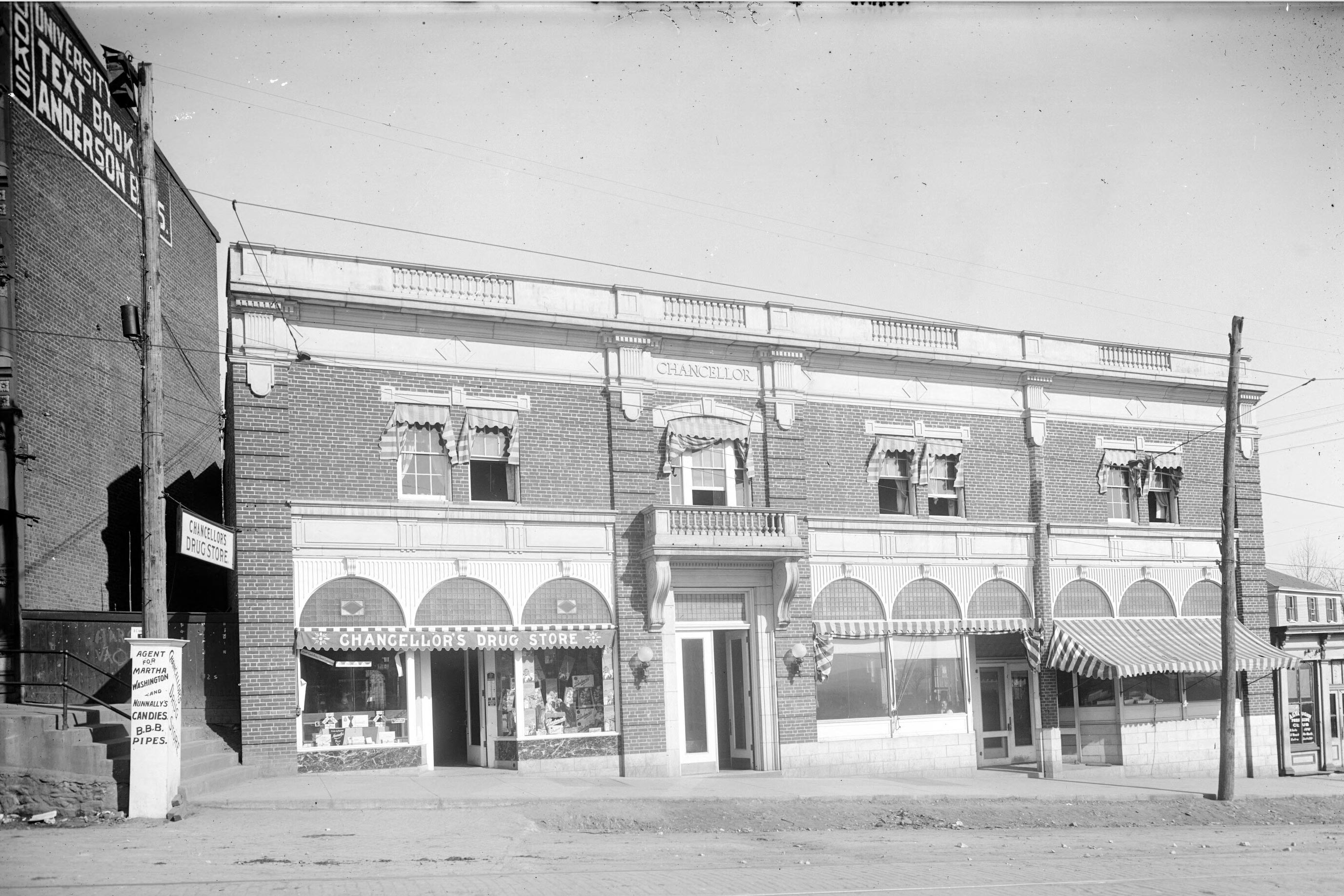
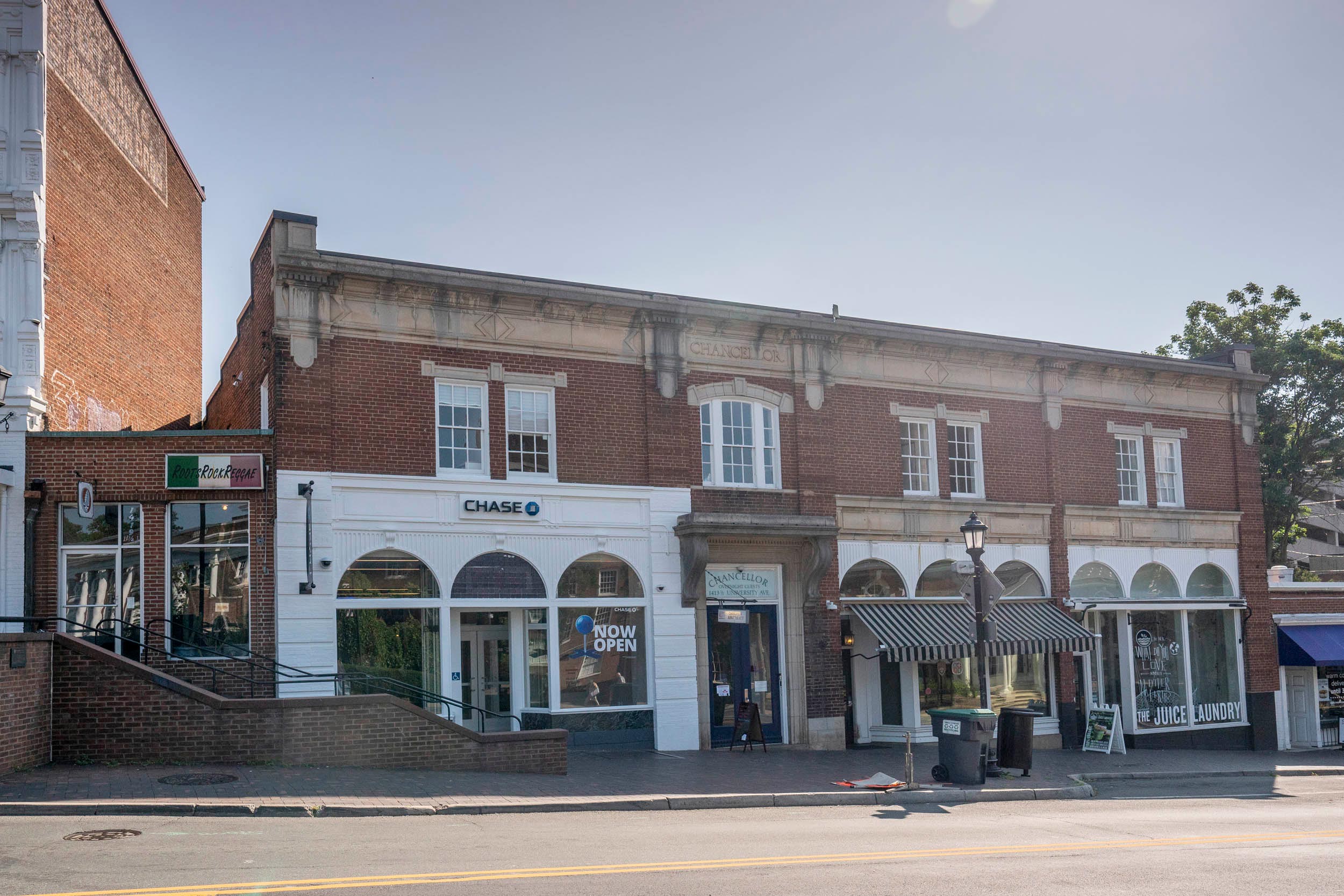
Gilliam’s first introduction to the Corner came in the summers during World War II when his father would send he and his siblings to live at his grandmother’s house on Virginia Avenue. “The grownups, in exasperation, would say, ‘Stop bothering your sister and go do something.’ So, I would go to the Corner,” he said.
Chancellor’s played a particularly important role for Gilliam during long summer nights.
“My great uncle Ned had retired and was living at his sister’s, my grandmother’s house on Virginia Avenue. Every night at 8:30, the ‘George Washington,’ the elegant principal train of the C&O Railway, would pass under the Beta Bridge, headed west. We would walk up to watch it, and then Uncle Ned would walk us to Chancellor’s for ice cream cones, almost always peach,” Gilliam said.
What was once a unified store with Chancellor Apartments on the top levels is now split between three different tenants, currently including Chase Bank, the Charlottesville Police Department and the Juice Laundry. You can still make out the name of the old drugstore engraved above the doorway between Chase and the police department.
The Juice Laundry, founded by UVA alumni Mike and Sarah Keenan, is a revolutionary business that in some way carries on the spirit of Chancellor – albeit with healthier products.
The Juice Laundry’s mission is to redefine the food business on both the corporate and consumer sides of the equation, Mike Keenan said. The owners seek to look at all components of their business – including where they get their ingredients, how food is packaged and what they do with the waste at the end of the day – in order to better serve the environment and the health of their customers, he said. [Read more here.]
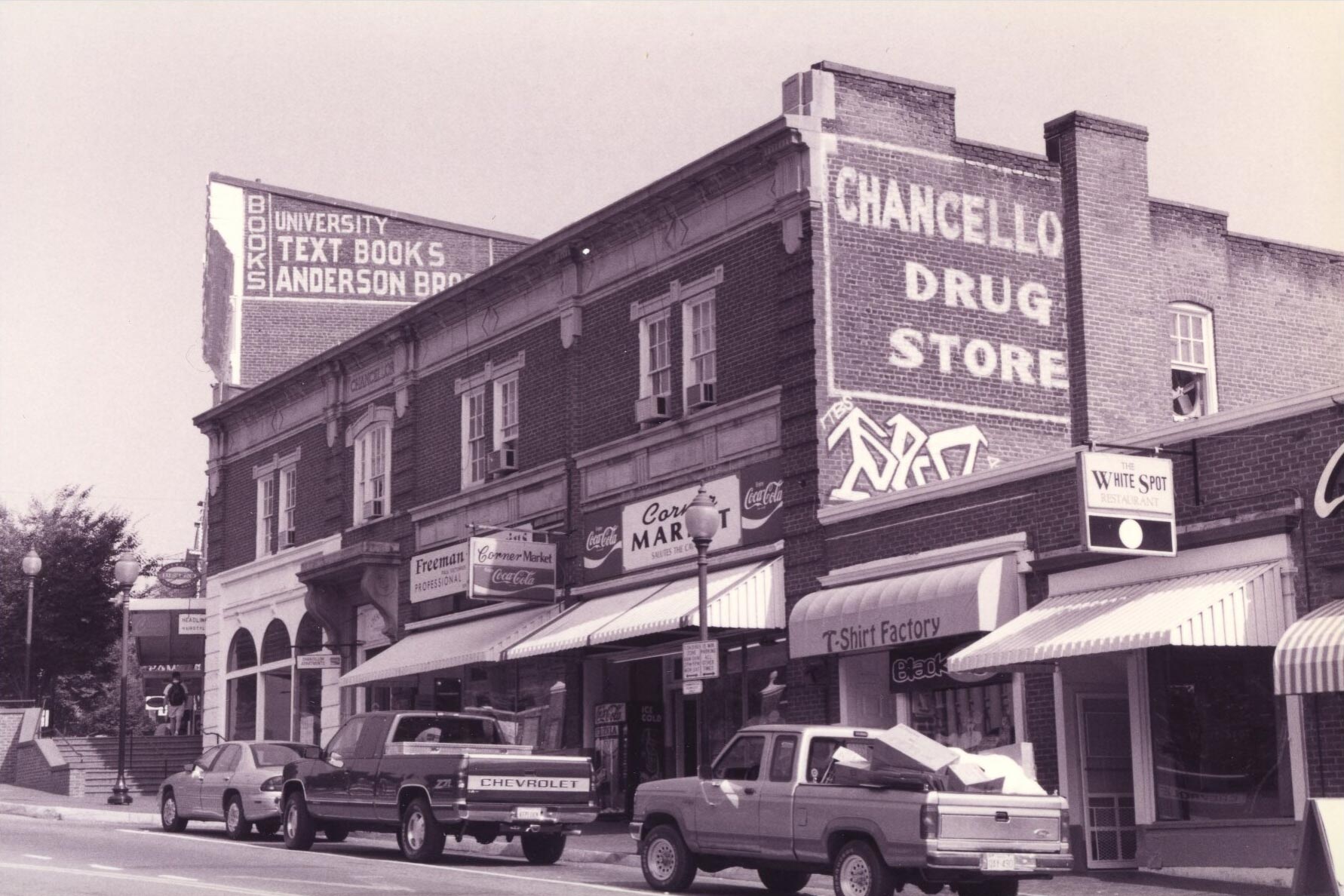
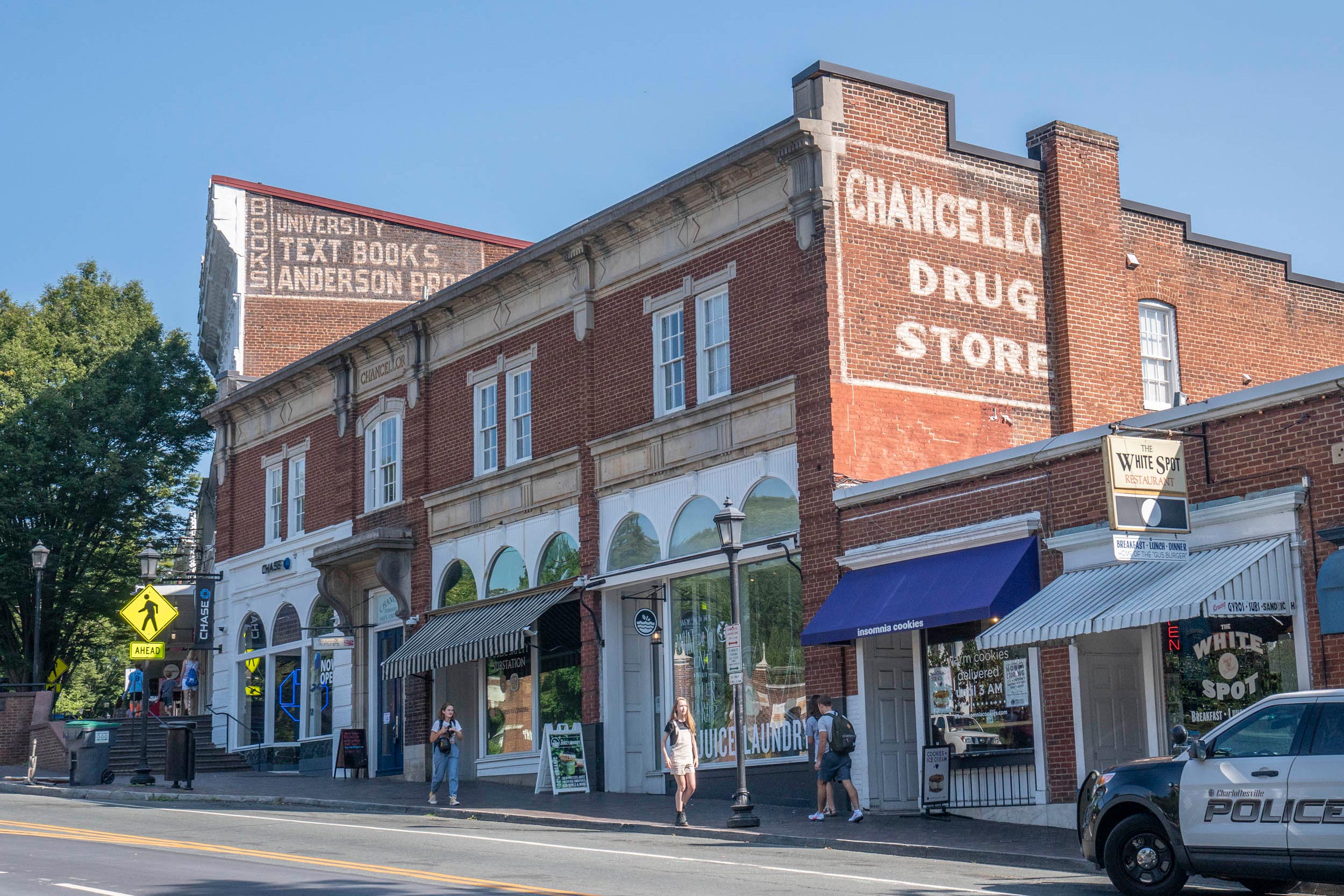
Keenan said he feels a sense of responsibility to the students who come to the Corner, as many are making their own food decisions for the first time. He believes the impact of businesses on the Corner is huge in the lives of those affiliated with the University.
“Not only is it the default place to eat for students, for everyone who works at the hospital [and] for a huge population of people who live in that area, in terms of convenience, it’s really the only place that a lot of people will go during their work day [or] during their school day,” he said.
With two locations in Charlottesville, one in D.C. and one coming soon to Richmond, Juice Laundry is growing quickly and becoming a tradition of the Corner – a location the Keenans couldn’t pass up.
“I remember when I was in school here there were certain spaces that always seemed to be rotating,” Keenan said, “Eventually, something maybe sticks there and becomes a staple of that strip.”
The Corner Now
The businesses on the Corner are more diverse than ever and, according to Gilliam, “the quality of food has risen enormously.” With more restaurant options and retail locations, the Corner is an ever-expanding hub of activity and livelihood for Charlottesville and the surrounding areas.
UVA alumnus Joseph Linzon, co-founder of both Roots Natural Kitchen and the Corner Juice, said his restaurants don’t see each other as competition, but rather a community of people working toward a common goal. For Linzon and his business partners, that goal is to make healthy food accessible and delicious.
“When we attended UVA, the Corner was a place we’d go all the time, but there never used to be healthy options near Grounds. As we began looking for healthy food for ourselves, we found that most juice bars and cafés were limited in their offerings. We decided that we wanted to create and grow healthy food concepts that appeal to everyone, not matter what or how you eat”, Linzon said.
The Corner is still very much the center of student life – a feeling perhaps best captured in the spring during the agonizing games of the NCAA men’s basketball tournament. The final two games of the tournament drew massive crowds to the Corner to watch the heart-pumping plays as the Cavaliers battled their way to the Final Four and the national championship.
After the team’s victory, the streets were full of celebration that continued into the wee hours of the morning, with students, alumni and local residents flooding the intersection of University Avenue and 14th Street.
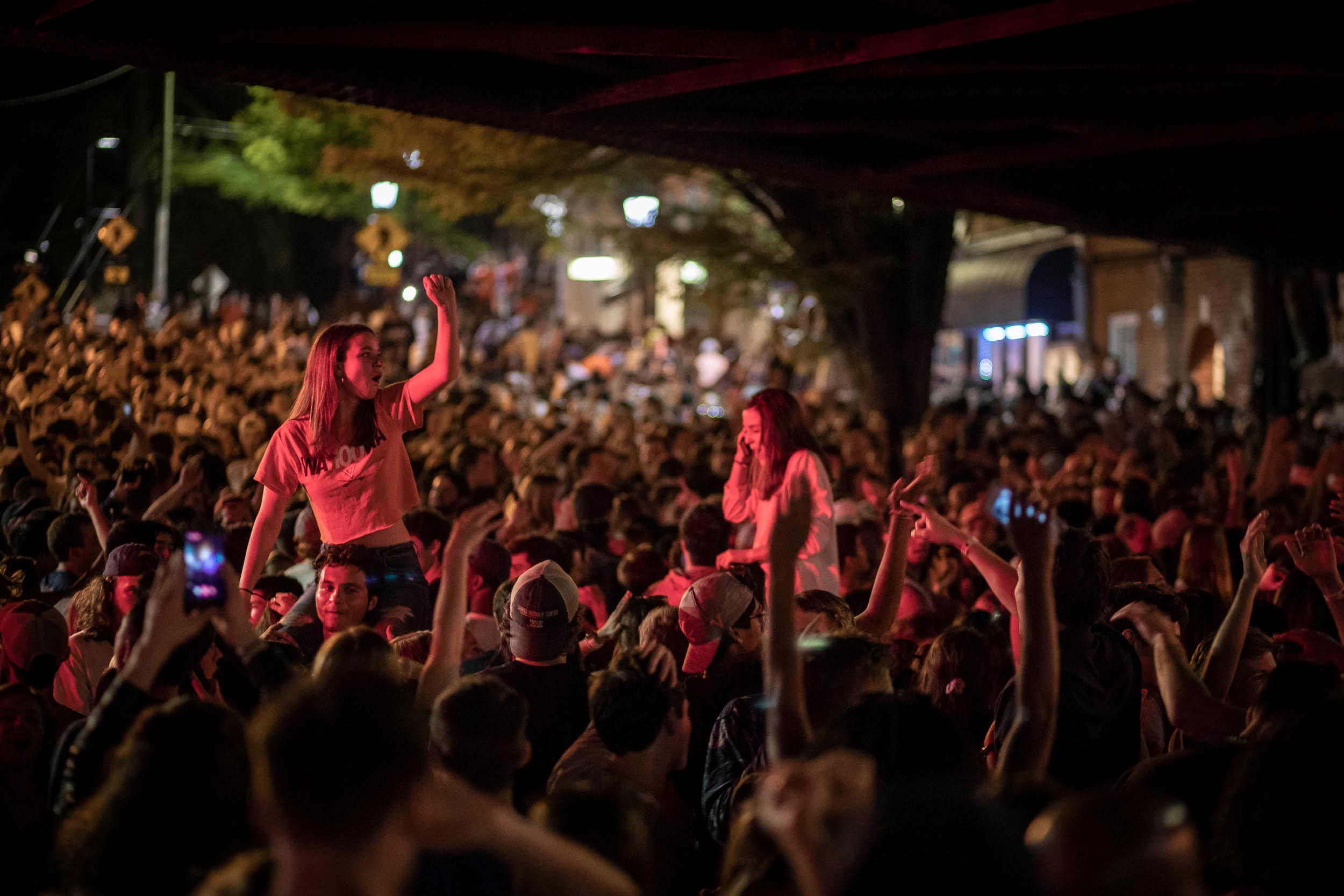
“I would describe [the Corner] as the heartbeat of UVA,” Linzon said. “That’s where all the electric scooters are, that’s where everyone congregates. Especially with UVA winning two national championships last year, it’s been more vibrant than ever.”
If the past 200 years of University of Virginia history have anything to say about it, the Corner will continue to be the home of Hoos for many years to come.
